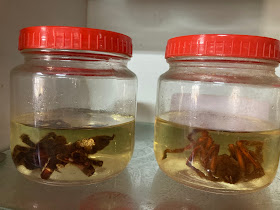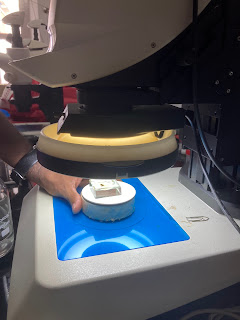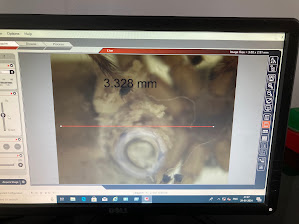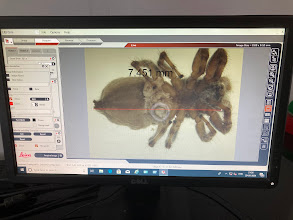This young man came to meet me at a function where I had just finished giving a lecture in a college in Kochi. I was very happy yet surprised to meet him as the young man was from Konkan region of Maharashtra and was pursuing his PhD degree in this college in Kochi, Kerala.

As I talked to him
more, I realized that he chose this college so far away because he has a
passion for spiders. After completing his masters in Wildlife Biology at
Bandodkar College, Thane, Maharashtra, he worked on collecting a large number
of spider species pan India and even discovered a few new species from places
as remote as Meghalaya[1].
In between he also worked at Salim Ali Centre. He found a laboratory here in
Kochi, that was one of the few in the country that worked on spiders and had
some of the most sophisticated microscopes to examine and study very small
spiders.
To preserve all these, they are kept in a solution of absolute i.e. 100% ethanol. If it evaporates after some time, it has to be refilled. They are taken out of it and looked at under a microscope to study the different nuances of their bodies. He then removed one such spider from a vial in front of me and placed it in a petri dish. He was going to show me what these spiders look like under a microscope. We have often seen them lurking in corners in our homes. I've tried taking pictures of some interesting looking spiders to try out my new lens adapter for a macro lens but I would end up seeing them 20 to 50 times larger than their actual size now. So, he put it under the microscope and in a minute or two he adjusted the focus to show me the spider. It was a female and her belly side was visible. Female spiders are generally larger than males. He also noted that among spiders, female spiders also eat males. They usually remove a part of the spider to look at the part under the microscope for detailed study, and this was a specimen that had already been dissected. Some of those pictures are shown here.
After a long search for various spiders, Gautam has collected a large number of specimens for himself to study. It is found in various parts of Tamil Nadu. It is a huge task to analyze all those samples thoroughly and write research papers on these findings of their features and characteristics. They check and record information from large datasets to find some new species that have not yet been recorded.
Now I understood why he came to such a remote place despite passing exams like GATE and why he didn't take admission in many well ranked institutes when he was eligible. His passion for spiders is immense and contagious. This is something that motivates him in his research even when he has no financial support from any fellowship and has to use his savings to survive. This obsession is something you may have heard/seen/read in stories of people who desperately try to pursue their passion for science, art, sports or anything else. Doing a PhD requires self-motivation and passion and he has it all. Coming from a rural background with no history of education at home, Gautam has set a role model for the children in and around his village.
-Dr. Vinayak Kamble
IISER Trivandrum
[1] https://hubnetwork.in/unveiling-the-unknown-new-spider-species-discovered-in-baladinggre-village-in-meghalaya/

















